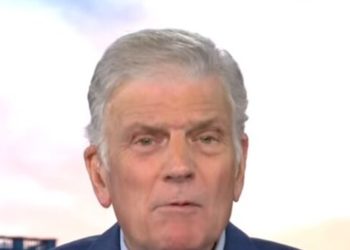The Gaza cease-fire deal between Israel and Hamas had yet to be ratified by Israel’s government on Thursday, but the battle over Prime Minister Benjamin Netanyahu’s political future has already begun.
Hours after the deal was announced, Mr. Netanyahu was facing a potential internal rebellion from far-right partners in his governing coalition on whose support he depends to remain in power.
There is a majority in the cabinet in favor of the cease-fire agreement, and it is expected to be approved even without the far-right parties’ votes.
But the far-right parties, led by Israel’s finance minister, Bezalel Smotrich, and the minister for national security, Itamar Ben-Gvir, vehemently oppose the deal.
The far-right ministers have threatened to quit the government if Mr. Netanyahu proceeds from the first phase of the cease-fire agreement, which calls for a temporary, six-week truce, to a permanent one.
Mr. Netanyahu may soon have a fateful choice to make in the politically precarious weeks ahead: keep his coalition together by resuming the fight against Hamas in Gaza, or risk the coalition coming apart halfway through its four-year term and gambling on an early election.
After more than 15 months of devastating war, and with President-elect Donald J. Trump about to assume office, some analysts think ending the conflict in Gaza is his better option.
“Elections are about a story,” said Moshe Klughaft, an Israeli strategic adviser and international political campaign manager who has advised Mr. Netanyahu in the past, adding that in the event of an election, Mr. Netanyahu’s next story will be one of “war and peace.”
The first phase of the deal is expected to start on Sunday and last six weeks, during which Hamas is supposed to release 33 Israeli hostages in exchange for hundreds of Palestinian prisoners, and Israeli troops are supposed to redeploy east, away from populated areas of Gaza.
If implemented, the second phase, over another six weeks, would see the rest of the hostages return home, some alive, some dead, and a full withdrawal of Israeli troops from Gaza.
The hostages’ families have pleaded with Mr. Netanyahu to put politics aside and complete the cease-fire deal. Mr. Trump has made it clear that he wants the war, prompted by the Hamas-led terrorist assault on Israel on Oct. 7, 2023, to end.
The first Trump administration brokered the normalization of diplomatic ties between Israel and three Arab countries. Israelis are now eyeing the prospect of a grander bargain leading to formal ties with Saudi Arabia in Mr. Trump’s next term, an arrangement that would strengthen the regional axis against Israel’s archenemy, Iran.
Mr. Klughaft, the strategist, said he believed there was “more chance that Mr. Netanyahu will choose Saudi Arabia and elections over Smotrich and continuing the war.”
Mr. Netanyahu’s far-right coalition partners want the war in Gaza to go on until Hamas is eliminated. Their hope is for the Israeli military to rule in the Palestinian enclave to eventually pave the way for Jewish settlement there.
Mr. Ben-Gvir has called the deal an Israeli “surrender” to Hamas and called in a video statement for Mr. Smotrich to help him make up the numbers to thwart it by resigning together from the government. Neither has the power to bring down the government alone.
Mr. Netanyahu has held lengthy meetings with Mr. Smotrich in recent days to try to prevent such a scenario. After three hours of talks between Mr. Smotrich and his party’s lawmakers on Thursday, the party issued an ultimatum demanding a promise from Mr. Netanyahu that he will resume the war against Hamas immediately after the first six-week cease-fire as a condition for Mr. Smotrich remaining in government.
Mr. Netanyahu, meanwhile, held off convening the cabinet for a vote to ratify the deal, citing last-minute disputes with Hamas over the details.
Some analysts believe that Mr. Netanyahu, who is battling corruption charges in a lengthy trial and risks facing a public reckoning once the war ends for the military and policy failures in the run-up to Hamas’s 2023 attack, will opt to scupper the second phase of the deal, if Hamas doesn’t do so first, to keep his coalition intact.
“Netanyahu wants to stay in power,” said Gayil Talshir, a political scientist at the Hebrew University of Jerusalem. “It doesn’t make any sense for him to go to elections that he might not win. He wants another two years leading the government.”
The post Netanyahu Faces a Political Crisis Over the Gaza Cease-Fire Deal appeared first on New York Times.




